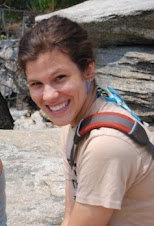July 9-12, I took a course called Invisible Structures. It wasn't quite what I expected. The idea behind the course what that we would focus on a what a community needed to be sustainable other than highly efficient buildings. These need can be broken into spiritual, social, environmental and economic categories. I was a little frustrated during this course because of how much we designed to expand the social capacity. We focused more on intentional living facilities, or even non-intentional apartment buildings, than on towns or regions. I suppose this makes sense for a three day course, but I have to say, for my interests, this class was pretty unsatisfying. While there was definitely some great conversation and there were some interesting ideas and techniques that would improve an immediate community, it was just too small for my liking. Small scale and not focused on cutting carbon emissions enough. I am a student of Richard Olson, obviously. I have to remember (and I gave this note to my class) that my
instructor and several of my classmates were from Canada in provinces that run primarily on hydroelectric power. They don't have to worry quite as much about cutting emissions.
Here are my notes from the class. Remember, you can click to make them bigger.



One thing that I starred to blog about was "the mythology of place." It's the attitude, or the declared vision. It's what the place is known for. For example,
Berea's mythology (which doesn't imply that it isn't true) is of equality and progressiveness. Because of the history of the school and how they market themselves, this is what they are known for. It is possible that
Berea is recognized as a sustainable school based greatly on this mythology of progressiveness. While
Berea certainly is making some big efforts towards a more sustainable campus, they are nowhere near as perfect as a lot of people seem to think they are. The mythology, however, influences opinions and views of the school. A place will eventually gain a mythology - a mood or reputation - so it's a good thing to think of as a place is being developed. However, once a mythology is developed, it's hard to change, which is why coal mining communities are often so reluctant to try using a renewable source of energy - they have a mythology of pride in their work.







No comments:
Post a Comment